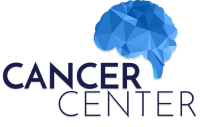About CANCER DETECTION CENTER
Cancer Detection Center: Revolutionizing Cancer Care in Sri Lanka
Cancer is a devastating disease that affects millions of people worldwide. In Sri Lanka, cancer is one of the leading causes of death, with over 20,000 new cases diagnosed each year. The National Cancer Control Programme (NCCP) of the Ministry of Health is the main government organization responsible for coordinating cancer control activities in Sri Lanka. One of its key initiatives is the Cancer Detection Center (CDC), which aims to revolutionize cancer care in Sri Lanka.
The CDC was established with a mission to provide high-quality cancer screening and diagnostic services to all Sri Lankans, regardless of their socio-economic status. The center offers a wide range of services including mammography, ultrasound scans, CT scans, MRI scans and PET-CT scans. These state-of-the-art facilities are equipped with cutting-edge technology and staffed by highly trained professionals who are dedicated to providing accurate diagnoses and personalized treatment plans.
One of the unique features of the CDC is its focus on early detection and prevention. The center offers comprehensive screening programs for various types of cancers such as breast cancer, cervical cancer, colorectal cancer and prostate cancer. These programs are designed to detect cancers at an early stage when they are most treatable.
In addition to screening programs, the CDC also provides counseling services for patients and their families. Coping with a diagnosis can be overwhelming for many people; therefore counseling sessions help patients understand their diagnosis better so that they can make informed decisions about their treatment options.
The CDC also collaborates with other organizations such as hospitals and research institutions both locally and internationally to ensure that it stays up-to-date on advances in technology or treatments related to oncology.
At present time there are several private hospitals offering similar services but at much higher costs than what's offered at CDC making it difficult for low-income individuals or those without insurance coverage access these life-saving screenings or treatments.
The CDC has been successful in reaching out not only urban areas but also rural areas where access healthcare facilities may be limited due lack transportation infrastructure or financial constraints among others reasons making it easier for people living outside major cities get screened regularly without having travel long distances which could be costly both financially as well as time-wise especially if they have work commitments during weekdays when most clinics operate.
Conclusion
In conclusion,Cancer Detection Center has become an essential part in fighting against this deadly disease by providing affordable high-quality diagnostic services coupled with education campaigns aimed at raising awareness about early detection methods among general public across all regions within country borders thus helping reduce mortality rates associated with late-stage diagnoses while improving overall quality life those affected by this disease through timely interventions tailored individual needs based on type severity condition being treated ensuring best possible outcomes achieved every patient served here!
